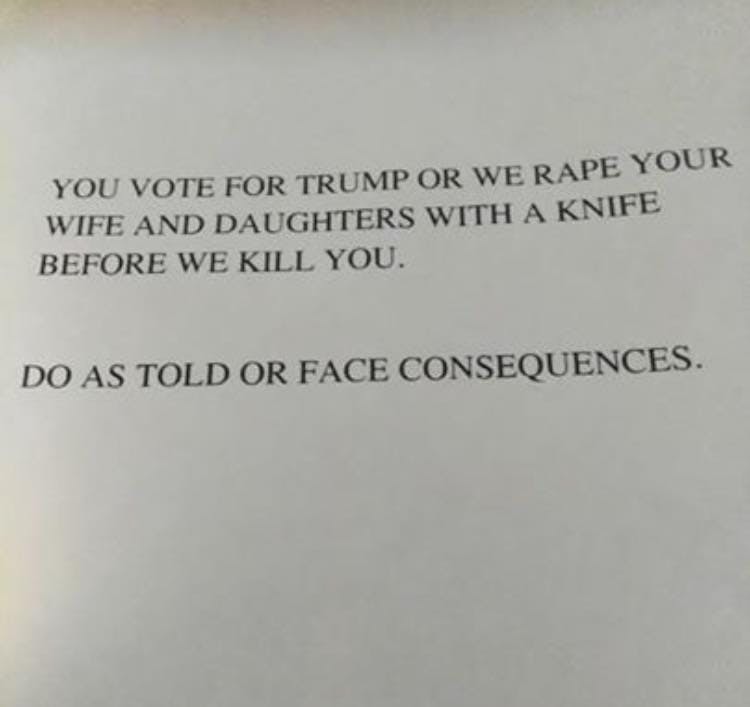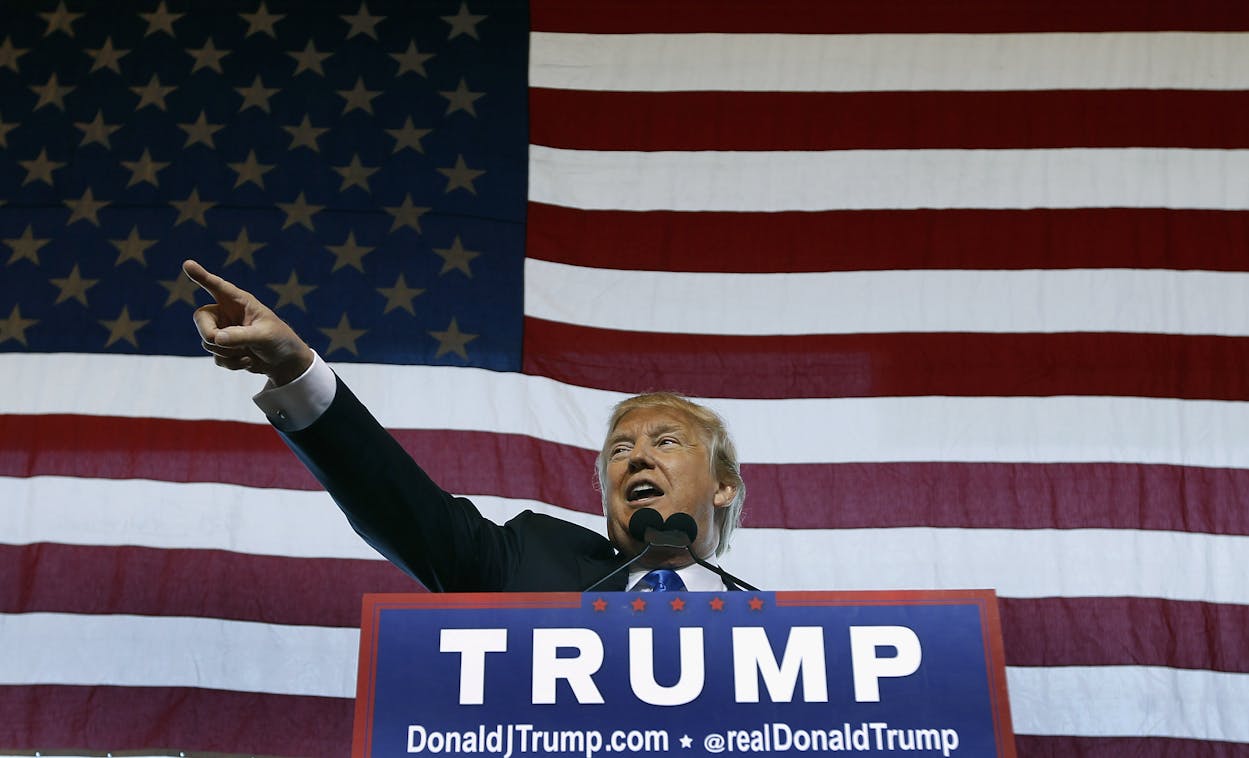On November 16, we introduced you to Art Sisneros, the Texas presidential elector from Dayton who hadn’t decided whether he would vote for President-elect Donald Trump, whom he considered morally unfit to be president. Ten days later, Sisneros announced in an essay posted to his website that he would resign his position rather than face that decision.
It turns out that Sisneros wasn’t the only Texas elector with misgivings about Trump. Last week, Dallas resident Christopher Suprun announced in a New York Times op-ed that on December 19 he would be voting for “an honorable and qualified man or woman such as Gov. John Kasich of Ohio.” We checked back in with Sisneros to get his thoughts on Suprun’s announcement, his own decision to resign as an elector, and what he’s learned from the experience.
This interview has been edited for clarity.
Michael Hardy: Have things quieted down since you announced that you were going to resign?
Art Sisneros: I thought resigning would be the end of it and that people would sort of move on. But that’s not what happened—it became a big deal that I resigned, which I didn’t anticipate. But Chris Suprun’s announcement kind of quieted things down on my end. He started to take all the heat.
MH: Do you think your example inspired Suprun to make his announcement?
AS: I don’t know. I have spoken with him, and he did say I got him to think about stuff. He was actually in the news first, saying that he didn’t know if he could vote for Trump. My understanding is that he reached out to the Trump camp and the Texas GOP trying to get some assurance that Trump was going to follow the Constitution in certain areas. And they apparently didn’t respond to him, so he decided that he wasn’t going to vote for Trump.
MH: On December 2, you posted a photo on Facebook of a death threat that read, “You vote for Trump or we rape your wife and daughters with a knife before we kill you. Do as told or face consequences.” You said it was received by a fellow elector and was forwarded to you to post. Was that Suprun?
AS: Yes. Chris is not on Facebook that I’m aware of, but he asked us to share that. He’s getting a lot of ugly stuff, as did I. Maybe it’s just that the Hamilton Electors [a group founded by several members of the Electoral College that advocates for choosing a Republican alternative to Trump] and the groups on the left wanted something from me, but they were a little more diplomatic in how they spoke and in their persuasion. But the Trump supporters and the people on the right thought that I absolutely had to vote for Trump, and to do otherwise was some kind of treasonous act. They were far more aggressive and far more nasty.

MH: Did you receive any threats?
AS: Oh, yeah. I received a lot of threats. I just didn’t think it would do any good to share them or make a big deal out of them. There were several nasty ones—to vote for Trump, or else. Some of them were pretty vague like, “we’re going to hunt you down,” that kind of stuff. Some were like, “we’re going to find out where you work and come after you.”
MH: Did the threats come in the mail? Online?
AS: I got a few letters, but I was lucky that my information didn’t make it out to the public. Some of my fellow electors, even ones who had no intention to go faithless, are receiving hundreds of letters and postcards from across the nation, from both sides.
MH: When people first found out you might not be voting for Trump, what was the response from the national and state Republican party?
AS: I didn’t hear anything from the national party. The state GOP did reach out to me. Your original story is what caught their attention, and [Texas GOP] Chairman Tom Mechler reached out to me. He was nice, not bringing pressure or anything. I thanked him for reaching out, told him I hadn’t decided, and explained my reasoning. He never bothered to call me back, so he didn’t seem that interested in trying to convince me otherwise.
MH: It’s a small sample size, admittedly, but besides you and Suprun there were one or two other Texas electors who had expressed misgivings about voting for Trump prior to the election. There does seem to be a bit more opposition to Trump in the Texas GOP than in other red states.
AS: There are a couple things going on in Texas. One is that the Republican party has become so comfortable with their people always getting [elected] that they’ve never had anyone really challenge them. And with what I did, and what Chris is now doing, we challenged them on the constitutionality of the Electoral College, and made them stick to their principles. There are some good electors in there—there aren’t many, but there are some—that are standing more on principle, even at the sake of their political future. There are more people who are willing to stand on principle and sacrifice whatever political ambition they may have. I know some who are going to vote for Trump, but were 100 percent supportive of me voting my conscience. They understand that’s the role of electors. Some were disappointed that I’m resigning, that I’m not sticking it out.
MH: On November 18, you put a post on your Facebook page that sounded like you were pretty secure in your decision to vote for somebody other than Trump. Then on November 27 you posted an essay explaining why you had decided to resign. What changed in those nine days?
AS: I think people read too much into what I was going to do as an elector. Honestly, I was not leaning toward going faithless. I was not leaning toward anything, really—I had just been wrestling with whether I, personally, could vote for Trump on November 8. So nothing really changed as far as what Trump did or said after the election. It was really no different from who he was six months ago or a year ago. It really came down to the pledge [to vote in the Electoral College for the winner of the popular vote]. People elected me on the basis of the pledge. They had full confidence when they voted for me that I would vote for the Republican candidate, no matter what. I never said that, but it was implied. I recognize that if I had come up and said, “I don’t care what the pledge says, I’m voting my conscience,” I wouldn’t have gotten elected.
MH: So you came to the conclusion that it was a mistake to sign the pledge in the first place?
AS: Correct. Signing the pledge, and leading people to believe that I would honor the pledge, I think that was wrong on my part. So I had to eat some humble pie on that one.
MH: In your essay announcing your decision to resign, you wrote that voting for Trump would “bring dishonor to God.” What do you mean by that?
AS: As a Christian, when I vote I do so based on a value system of right and wrong that is informed by the Bible. And what does God say about those who hold civil office? He says that there are certain qualities we look for when we’re electing leaders—and Trump does not have them. And I think the consequences will be seen by all. I think that he won’t be impartial, he won’t be just to certain groups of people, he’ll covet, he’ll make a lot of money for some people. Nothing very different from other presidents we’ve had—I’d say most of the presidents in our recent history have been that way—but that’s because we’ve lost the standards by which we choose leaders.
MH: In the conclusion to your essay, you said that “our republic is lost. The shell may remain, but in the hearts of the people and the functionality of the system our republic is gone.” Can you expand upon that a bit?
AS: The reaction when I said I might not vote for Trump was, “You need to do what the people demand. There was a popular vote in your district, and the people have spoken.” If we’re going to go that route, then I sympathize with those who want to do away with the Electoral College, because that’s not its purpose. We ought not to elect representatives to do what the people in their districts demand, we should elect people who share a value system with us, will abide by the rule of law, and will use their own discernment on how to apply the Constitution to the laws of the state. When we make what the people want the ultimate authority, we’ve moved away from a republic and towards a pure, direct democracy.
MH: What reforms, if any, would you like to see to the Electoral College?
AS: I don’t think we’re going to get back to the original intent of the Framers [of the Constitution]. We’re just so far away from that. But I do think we could take some simple steps that would move us in the right direction. I would like to see us move away from states using the winner-take-all system. Instead, each congressional district’s elector could vote for the winner of the popular vote in that district. So you’d have Texas not be all red and California not be all blue. I think that would be more representative of the country.
MH: Lieutenant Governor Dan Patrick has said he thinks the Legislature should pass a law binding Texas electors to vote for the winner of the state’s popular vote. What’s your reaction to that?
AS: Obviously, I’m not a big fan of that. I think what happened is that, between me and Chris, we’ve basically embarrassed the Texas GOP a little bit. Nationwide, people are like, what’s going on in Texas? This is an attempt [by the state GOP] to save face.
MH: What’s next for you? Do you plan to stay engaged in politics?
AS: I’ll continue what I’m doing. I have no intention of going anywhere. I won’t be running for stuff in the Republican party, but it was never really my intention to move up the ranks of the Texas GOP. I’m more interested in advancing my principles and changing the way people think. I help run Governing God’s Way, an annual Christian conference, and I’ll continue doing that as well as working locally.
MH: From your Facebook posts and our conversations, it sounds like you’re fairly pessimistic about America’s future.
AS: I’m pessimistic about where the American people are at large, but I’m optimistic about the conversation I’ve started. I always intended to get people talking, though I could not have known it would turn out this way. I’ve gotten messages from people all across the country who have said that I’ve made them think about things, about how they’re applying their faith to their politics and other areas of their life. So I think I’ve challenged a lot of people, and that’s a great encouragement. I’m much more comfortable in the realm of influencing how people think. Long–term, ideas have far more influence than any one election. My vote in the Electoral College would have come and gone, but if I can change the way a dozen, a hundred people think, then who knows what the ripple effect of that will be? So short–term I’m pessimistic, but long–term I’m actually very optimistic that some people are waking up. Some people are getting it.








